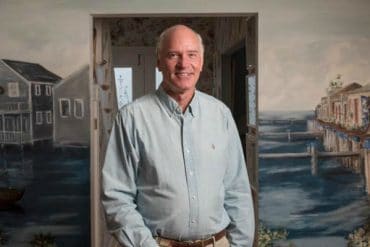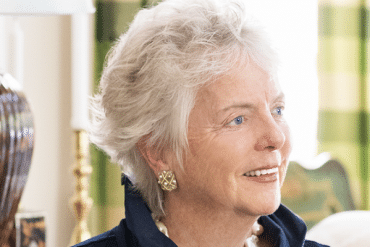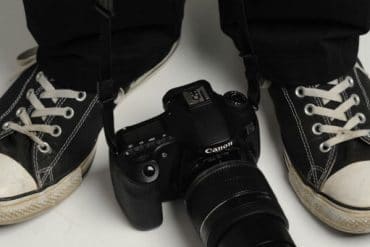Nothing breaks up a fall weekend quite like having two U.S. senators, the world’s top stem cell researcher, the former Secretary of the Treasury and the CEO of America’s largest private company pepper you with their personal and professional views of the world. This is the second annual Nantucket Project, a three-day long conference where the influential join the powerful and the brilliant join the gifted to disseminate the latest accomplishments in the realms of medicine, education, technology and social innovation.
“Go big or go home,” was the Bill Gates quote referenced by the Nantucket Project’s first presenter John Wood, the founder of Room to Read. After leaving Microsoft, Wood has managed to create a global literacy organization that has resulted in building more libraries than Andrew Carnegie did, reaching over six million children. Wood’s organization opens as many schools per day as Starbucks does coffee outlets, and, as a young man, he has already left an indelible mark on the developing world.
And then there was Dr. Daniel Kraft, a former physician at Mass General Hospital and now at Singularity University, who demonstrated to the audience a cardiogram app for an iPhone that enables patients to communicate vital heart information to their doctor without leaving home. Kraft then went on to open people’s eyes to medical technology right around the corner that literally comes out of episodes of “Star Trek.”
To paraphrase the old EF Hutton television commercials, “When the Nantucket Project speaks, people listen.” And listen they did. In a remarkable moment, a young lady unable to speak due to autism, Carly Fleischman, stunned the audience by demonstrating full cognitive skills locked within her body through the use of a laptop computer. On stage with Autism Speaks founder and former Universal chairman, Bob Wright, Fleischman grilled U.S. Senator John Kerry with questions about autism that raised the larger question as to whether millions of other non-verbal autistic children have broader cognitive skills than ever imagined.
If a picture is worth a thousand words, a great political cartoonist has an entire vocabulary of his very own. Ranan Lurie, the most influential political cartoonist of our time, spoke of his interactions with various leaders around the globe, including Mikhail Gorbachev. He recounted to the moderator, MSNBC “Hardball” host Chris Matthews, that upon his first meeting with the former Russian president, Gorbachev immediately embraced him with a bear hug because of Lurie’s blood relationship to Karl Marx. Lurie quickly indicated to Gorbachev that his family had shunned Marx because of the rumor that he may have been a Communist, which was one of the session’s great understatements.
At a time when Americans are caught between feelings of optimism and pessimism, the Nantucket Project presented both cautionary tales and uplifting examples of boundless inventiveness and creativity. By the end of the weekend, the theme of collective intelligence impacted everyone’s thinking in the room by suggesting that no matter how many obstacles we face, virtually nothing is impossible by unlocking the power of individual talent. For many, attending the Nantucket Project was the smartest decision they may have made all year.








